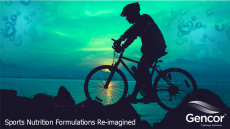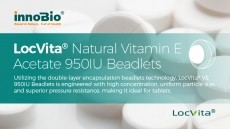PLT achieves GRAS for vitamin K2 in dairy
in the US, following the ingredient's GRAS designation, the company
announced today.
MenaQ7, a natural vitamin K2, was found safe for use as an ingredient in dairy goods by an independent panel of experts.
The self-affirmed GRAS status opens up a new market for MenaQ7, which has so far been supplied for use in dietary supplements.
The ingredient, which is manufactured by Norway's NattoPharma and distributed by PL Thomas, is an extract of the fermented soy food called natto.
This is commonly eaten in Japan, and is rich in menaquinone-7, a highly bioavailable form of vitamin K2.
According to PL Thomas, the panel examining the ingredient's suitability in food conducted a critical review of safety, toxicology and clinical research data.
This was obtained from animal and human testing, and was based on scientific procedures and safety assessment criteria established by the US Food and Drug Administration (FDA).
The company will next month submit the GRAS assessment to the FDA for comment, in order to give further weight to the ingredient's applicability in dairy goods.
PLT brands manager Eric Anderson told NutraIngredients-USA.com that the firm will next look into achieving GRAS status for the use of MenaQ7 in other food and beverage applications.
"We started with dairy because the best source of natural vitamin k 2 in Western diets is fermented cheese -
so it seems natural to apply for dairy first," he said.
"We feel this is particularly interesting for children as they have the highest need for vitamin K2 since their bones are growing dramatically.
There is ample evidence that Western children are deficient in vitamin k2, and adding it into cheese, yogurt or dairy beverages could be one way to address this."
Vitamin K2 has been linked to bone health and cardiovascular health, due to its importance in ensuring the human body effectively utilizes calcium.
One of the key pieces of research on K2 and cardiovascular health is the Rotterdam Study (Geleijnse et al, Journal of Nutrition 134: 3100-3105, 2004), which analyzed dietary data obtained from 4807 subjects between 1990 and 1993, who were then followed until January 2000.
The researchers observed that relative risk of coronary heart disease mortality was reduced in the mid and upper tertiles of dietary menaquinone compared to the lower tertile, and intake of menaquinone was inversely related to all-cause mortality and severe aortic calcification.
The researchers said their findings "suggest that an adequate intake of menaquinone could be important for CHD prevention" .












